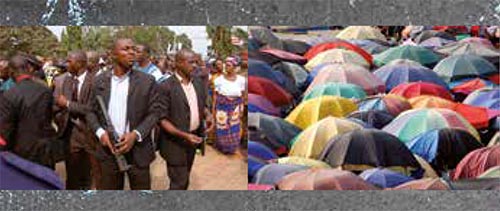Leaflet on 10 Myths on Violence in Nigeria", Nigeria Watch Program

Nigeria has a reputation for being one of the most violent countries in Africa and in the world. It is sometimes compared to Mexico and Colombia when it comes to drug cartels, Iraq when it comes to oil conflicts in the Niger Delta, or Afghanistan, Syria, and Mali when it comes to jihadist insurgencies like Boko Haram in Borno. Such views are widely shared in Nigeria and abroad.
et they often rely on personal perceptions and, sometimes, rumours about conspiracies, the power of invisible forces, or the scramble for resources.
Hence it is necessary to debunk some of the local and global myths about violence in Nigeria.
Using a database which indexes and codes fatal incidents on a daily basis since 1 June 2006, this brief is the first attempt to obtain an objective assessment of the situation from a scientific point of view. It compensates for the lack of police statistics and provides answers to policy-makers, academics, journalists, diplomats, development agencies, humanitarian workers, and security operatives.
This brief is the result of a collective effort, carried out during a 5-day Masterclass organized by IFRA-Nigeria (French Institute for Research in Africa) in December 2017. A group of post-graduate students of the University of Ibadan worked under the supervision of senior scholars, specialists in conflicts and violence, and produced these texts and graphs based on Nigeria Watch’s data. The methodology used to aggregate the data is detailed online at: http://www.nigeriawatch.org/
Some of the myths addressed here include the perception of rising violence, the role of economic recession and oil production, attacks on foreigners, crime cycles, security in Abuja and Lagos, Sharia Law, religious conflicts, and ritual killings.
Prof. Marc-Antoine Pérouse de Montclos (IRD and PRIO), founder of Nigeria Watch and editor of the leaflet.

Social Media
Mailing List